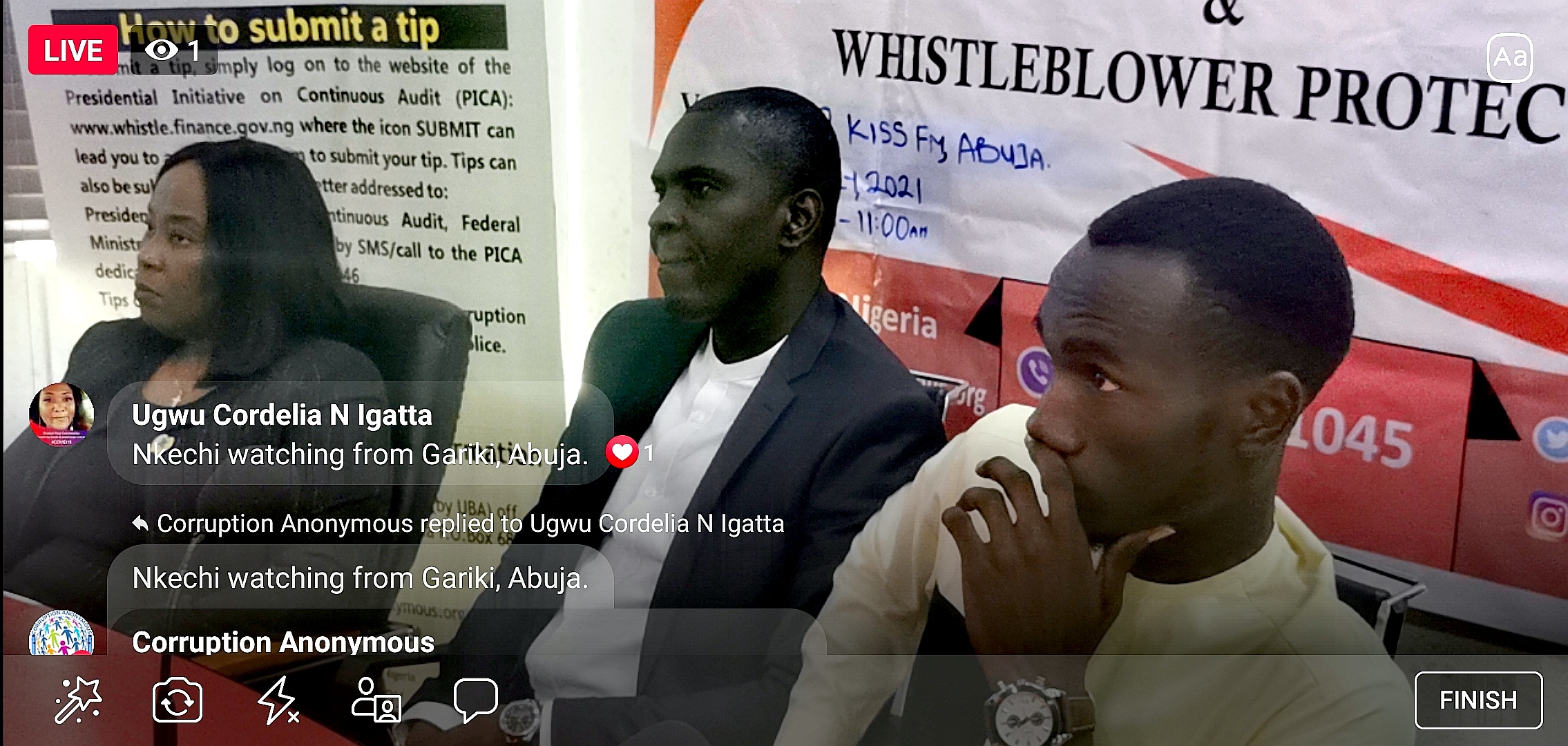By Doyin Ojosipe
The Independent Corrupt Practices Commission and other related offences Commission (ICPC), said it has commenced an Effectiveness Index (EI) activity of Anti-Corruption Transparency Units (ACTUs) of Ministries, Departments and Agencies as a way of improving whistleblowing practice in Nigeria.
Speaking at a radio town hall meeting on Kiss 99.9FM Abuja, the spokesperson, ICPC, Azuka Ogugua, stated that the Units were meant to help do everything ICPC does in those agencies, including preliminary investigations but without prosecutions.
“For ICPC to ensure that what the units do are effective, we started what is called the ACTU Effectiveness Index last year to measure how effective they are in doing what they are supposed to do, receiving reports, investigating reports and escalating it to their management and ICPC.”
According to her, “The ICPC Act, section 27, predates the whistleblowing policy which recognises whistleblowing as the right of citizens to report corruption whether orally or in writing addressed to the commission.”
She said the approval of the whistleblower policy had led to the creation of more channels of reporting for the public, including electronic means via email (info@icpc.gov.ng), ICPC website (www.icpc.gov.ng) and through a phone call to the commission’s toll-free lines.
“We now receive reports on our social media handles, and we equally have a dedicated toll-free line for reports. When people call in, they are advised on what to do.”
Urging Nigerians not to relent in exposing corruption, Ogugua said a bulk of the commission’s work depends on the tips or petitions submitted by the public.
She noted that while ACTU was very functional at the MDAs, it did not have the mandate to prosecute but only to establish if the petitions submitted by staff were issues that could be resolved within the organisation or forwarded to relevant anti-graft agencies for detailed investigation.
Chief Superintendent of Police (CSP) Femi Adedeji, who represented the Nigeria Police Force at the meeting, said the police had always made use of whistleblowers in form of informants long before the whistleblowing policy was introduced.
He added that although the police were involved from investigation all through to arraignment, they only collaborated with the antigraft agencies that requested assistance to get specific information during the investigation.
He said, “What the police does because the whistleblowing policy is an initiative of the Federal Ministry of Finance, is to get information and pass it on to the appropriate agencies that will begin to utilize it apart from the police taking action because we are talking about crime here and corruption is a major crime… sometimes, specific agencies need specific information so the police keys into it and gets information through informants whom we create a transactional relationship with.”
In his contribution, Dr Timipere Allison, head of programs, Centre for Democracy and Development (CDD) West Africa, noted that citizens’ involvement in the whistleblowing policy had since waned because of the lack of political will on the part of the federal government.
He urged the federal government to make available data of any notable improvement if his assertion was not right. Allison said just like successive governments, the present administration had only weaponized the policy to go after political enemies.
“In terms of the anti-corruption agencies using the whistleblowing policy to pursue big corruption cases, we haven’t seen much of the reporting of the whistleblowing policy in these organisations leading to increased recoveries or arrests of prosecution,” he said.
Another panelist, Samuel Asimi, Program Officer, Anti-Corruption, Civil Society Legislative Advocacy Centre (CISLAC), urged the federal government to always redeem its pledge by paying whistleblowers their rewards as at when due as failure to do so would discourage prospective whistleblowers from blowing the whistle.
He observed that the policy was not all-encompassing as it did not make provision for the adequate protection of whistleblower who faces different reprisals for blowing the whistle.
He recommended that apart from providing for a legal framework that protects whistleblowers, reporting via digital channels should be made available to ensure that the identity of the informant was kept secret.
The radio town hall meeting was organised by the African Centre for Media and Information Literacy (AFRICMIL) in collaboration with Progressive Impact Organisation for Community Development (PRIMORG). It is one of the activities of the Corruption Anonymous (CORA) project of AFRICMIL supported by MacArthur Foundation.





